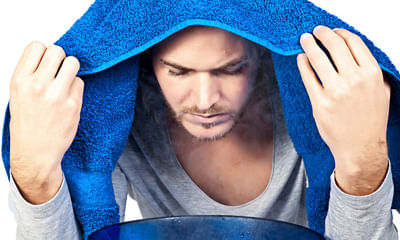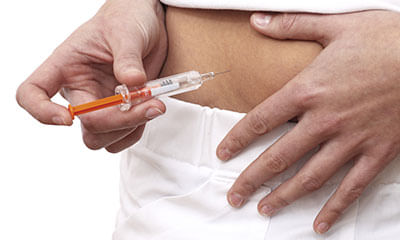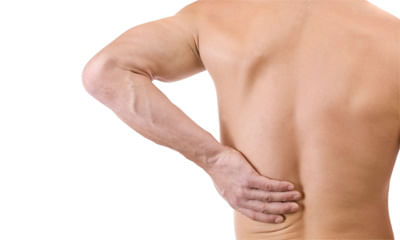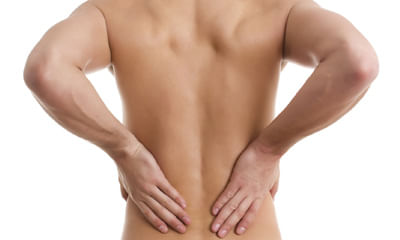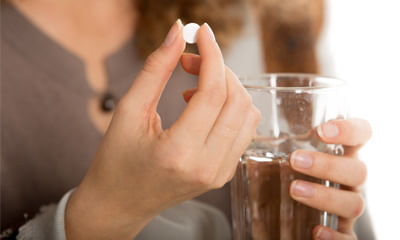Does High Fever Cause Vomiting
My mother is 58 years old. She is diabetic for past 15 years. In june she is suffering from fever, vomiting and very muc ...
Ask Free Question
very high hba1c, so as sugar. is one of the foremost important reason . better to hospitalised n got continued monitoring of glucose levels.
My brother had high fever 103 and vomiting fatigue and after so many tests (i can send if you ask, it's just assumed to ...
Ask Free Question
Hepatitis is an infection of the liver, so all fatty and spicy food should be avoided, also avoid too much sugar and salt.
I am 25 years old. Last week I took fbc for my medical test and lymphocytes were little high. It was 44.3%,other blood c ...
Ask Free Question
Normal adult lymphocyte count should be 20-40%. Red flag range is <20% or > 55%. Since all other counts are normal and no specific health issue you may ignore it. Acute or chronic viral or bacterial infection are common causes of high lymphocyte count. You have not mentioned need for medical test. Usually they focus on some chronic health disorder. For personal satisfaction get cbc test again after about a month to look for only gross abnormality if any.
I am nozimul I am 21 year old I have been feeling pain on my back near kidney from many days and I also felt burning on ...
Ask Free Question
Kidney pain vs. Back pain because your kidneys are located toward your back and= underneath your ribcage, it may be hard to tell if the pain you’re experiencing in that area is coming from your back or your kidney. The symptoms you’re having can help you figure out which is the source of the pain. The location, type, and severity of the pain are some of the things that will be different depending on whether the pain is from a problem in your kidneys or your back. How to identify kidney painkidney pain is most often caused by a kidney infection or a stone in the tubes coming out of your kidney. If the pain is coming from your kidney, it will have these features: where the pain is located kidney pain is felt in your flank, which is the area on either side of your spine between the bottom of your ribcage and your hips. It usually occurs in one side of your body, but it can occur in both sides. Type of pain kidney pain is usually sharp if you have a kidney stone and a dull ache if you have an infection. Most often it will be constant. It won’t get worse with movement or go away by itself without treatment. If you’re passing a kidney stone, the pain may fluctuate as the stone moves. Radiation of the pain sometimes the pain spreads (radiates) to your inner thigh or lower abdomen. Severity of the pain kidney pain is classified according to how bad it is — severe or mild. A kidney stone usually causes severe pain, and the pain from an infection is usually mild. Things that make it better or worse typically, nothing makes the pain better until the problem is corrected, such as by passing the stone. Unlike back pain, it usually won’t change with movement. Accompanying symptoms if you have a kidney infection or a kidney stone, you may also experience: •fever and chills •nausea and vomiting •cloudy or dark urine •an urgent need to urinate •pain when you urinate •a recent infection in your bladder •blood in your urine (this can happen with an infection or kidney stones) •small kidney stones that look like gravel in your urine how to identify back pain back pain is more common than kidney pain and is usually caused by a problem in the muscles, bones, or nerves in your back. Has the following features: where the pain is located back pain can occur anywhere on your back, but it’s most commonly located in your lower back or one of your buttocks. Type of pain muscle pain feels like a dull ache. If a nerve has been injured or irritated, the pain is a sharp burning sensation that may travel down your buttock to your lower leg or even your foot. Muscle pain may affect one or both sides, but nerve pain usually only affects one side. Radiation of the pain nerve pain may spread to your lower leg. Pain from a muscle usually stays in the back. Severity of the pain back pain is described as acute or chronic based on how long you’ve had it. Acute pain lasts days to weeks, subacute pain lasts six weeks to three months, and chronic pain lasts longer than three months. Things that make it better or worse back pain may get worse with movement or if you sit or stand for a long time. It may get better if you switch positions or walk around. Accompanying symptoms other symptoms you may experience with back pain include: •the painful spot looking swollen and feeling tender to the touch •a muscle spasm in the painful area •numbness or weakness in one or both of your legs (if the pain is due to a nerve issue) if you find you have back pain and can’t hold your urine or bowel movements, something is pressing on your spinal nerves, and you should be evaluated immediately. This condition, called caudaequina syndrome, can cause severe long-term damage to your spinal nerves if not treated right away.
My father age is 55. From the last 2-3 months he is facing too much back pain even this pain is severe that he couldn't ...
Ask Free Question
Kidney pain vs. Back pain because your kidneys are located toward your back and= underneath your ribcage, it may be hard to tell if the pain you’re experiencing in that area is coming from your back or your kidney. The symptoms you’re having can help you figure out which is the source of the pain. The location, type, and severity of the pain are some of the things that will be different depending on whether the pain is from a problem in your kidneys or your back. How to identify kidney painkidney pain is most often caused by a kidney infection or a stone in the tubes coming out of your kidney. If the pain is coming from your kidney, it will have these features: where the pain is located kidney pain is felt in your flank, which is the area on either side of your spine between the bottom of your ribcage and your hips. It usually occurs in one side of your body, but it can occur in both sides. Type of pain kidney pain is usually sharp if you have a kidney stone and a dull ache if you have an infection. Most often it will be constant. It won’t get worse with movement or go away by itself without treatment. If you’re passing a kidney stone, the pain may fluctuate as the stone moves. Radiation of the pain sometimes the pain spreads (radiates) to your inner thigh or lower abdomen. Severity of the pain kidney pain is classified according to how bad it is — severe or mild. A kidney stone usually causes severe pain, and the pain from an infection is usually mild. Things that make it better or worse typically, nothing makes the pain better until the problem is corrected, such as by passing the stone. Unlike back pain, it usually won’t change with movement. Accompanying symptoms if you have a kidney infection or a kidney stone, you may also experience: •fever and chills •nausea and vomiting •cloudy or dark urine •an urgent need to urinate •pain when you urinate •a recent infection in your bladder •blood in your urine (this can happen with an infection or kidney stones) •small kidney stones that look like gravel in your urine how to identify back pain back pain is more common than kidney pain and is usually caused by a problem in the muscles, bones, or nerves in your back. Has the following features: where the pain is located back pain can occur anywhere on your back, but it’s most commonly located in your lower back or one of your buttocks. Type of pain muscle pain feels like a dull ache. If a nerve has been injured or irritated, the pain is a sharp burning sensation that may travel down your buttock to your lower leg or even your foot. Muscle pain may affect one or both sides, but nerve pain usually only affects one side. Radiation of the pain nerve pain may spread to your lower leg. Pain from a muscle usually stays in the back. Severity of the pain back pain is described as acute or chronic based on how long you’ve had it. Acute pain lasts days to weeks, subacute pain lasts six weeks to three months, and chronic pain lasts longer than three months. Things that make it better or worse back pain may get worse with movement or if you sit or stand for a long time. It may get better if you switch positions or walk around. Accompanying symptoms other symptoms you may experience with back pain include: •the painful spot looking swollen and feeling tender to the touch •a muscle spasm in the painful area •numbness or weakness in one or both of your legs (if the pain is due to a nerve issue) if you find you have back pain and can’t hold your urine or bowel movements, something is pressing on your spinal nerves, and you should be evaluated immediately. This condition, called caudaequina syndrome, can cause severe long-term damage to your spinal nerves if not treated right away.
Hello. I wanted to know what is the problem with my girlfriend's immunity. Sometimes she suddenly gets headache and feve ...
Ask Free Question
Basically this may be due to some gadtrointrstinal tract related pathology like celiac disease whipples disease so provide me the dieyry history also therefore I can find out proper diagnosis .what is body weight status of last months.
My son is 4 years 10 months old. Whenever he gets an usual fever we always give ibugesic plus instead of paracetamol. Is ...
Ask Free Question
Yes, it is okay to give ibugesic plus. As it contains both ibuprofen and paracetamol. To get the best result of medicine, adhere to the prescribed dose, time, and way while giving this medicine to your child. Give it to your child orally, preferably after meals as this will prevent the chance of developing an upset stomach. If your child vomits within 30 minutes taking, give the same dose again. Never give more than the recommended dose for fast relief as that may cause unwanted effects in your child. Your child may exhibit side effects like nausea, vomiting, stomach pain, heartburn, and diarrhea after taking this medicine. These side effects are temporary and should subside once your child’s body adapts to the medicine. In case they persist or become bothersome for your child, do consult your child’s doctor on a priority basis. Ibugesic plus oral suspension orange helps lower high temperature caused by fever. This medicine is effective in treating cold and flu symptoms, sore throat, and fever. Do not take too much or for longer than you need as this can be dangerous. In general, you should take the lowest dose that works, for the least possible time.
Very non specific but yes health anxiety. Age 23 male I had a gluteal abscess on left side in sep 2021. I got fever too ...
Ask Free Question
To rule it out, you must go to a doctor and take a proper check up. trying to escape a doctor's consultation for any reason is the worst you can do to yourself.
I recently had high fever dehydration and vomiting so doctor had asked me to do blood test. Rest all is normal expect es ...
Ask Free Question
The causes for high esr are ----infection s/inflamations in heart; kidney ; git; bones ; blood vessels etc; autoimmune disorders like --irritable bowel syndrome; rhematoid arthritis etc --kindly get check-up with investigations under a medical consultant doctor and treat the identified health problem ,so that your esr will come down.
After taking all medicines and doctor consultations my fever is not reducing. I also have fever since 2 weeks as it come ...
Ask Free Question
U have not mentioned how much fever you got. Check it with thermometer. What are other symptoms. Any problem in throat or urine? Breathing problem? Do you feel chilly before fever. Appetite? Have you list weight in these 2 weeks. Vomiting or nausea? Pain anywhere? Need details of case. In the meanwhile follow this 1. Do saline gargles daily. 2. Whenever possible do steam inhalation also. 3. Cover your nose and mouth with hanky for at least 30 sec when you go in dusty areas also when you go in and out of ac. As our nose is the most sensitive part of our body, when there is temperature difference between two rooms or inside n outside, then if we not protect our nose, it gets affected. 4. Drink hot liquids --hot liquids relieve nasal congestion, prevent dehydration, and soothe the uncomfortably inflamed membranes that line your nose and throat. 5. Sleep with an extra pillow under your head-- elevating your head will help relieve congested nasal passages. If the angle is too awkward, try placing the pillows between the mattress and the box springs to create a more gradual slope. 6. Treat that stuffy nose with warm salt water-- salt-water rinsing helps break nasal congestion, while also removing virus particles and bacteria from your nose. 7. Blow your nose often (and the right way)-- it's important to blow your nose regularly when you have a cold rather than sniffling mucus back into your head. But when you blow hard, pressure can carry germ-carrying phlegm back into your ear passages, causing earache. The best way to blow your nose: press a finger over one nostril while you blow gently to clear the other. Homeopathic treatment has very encouraging results. Consult online for details.


